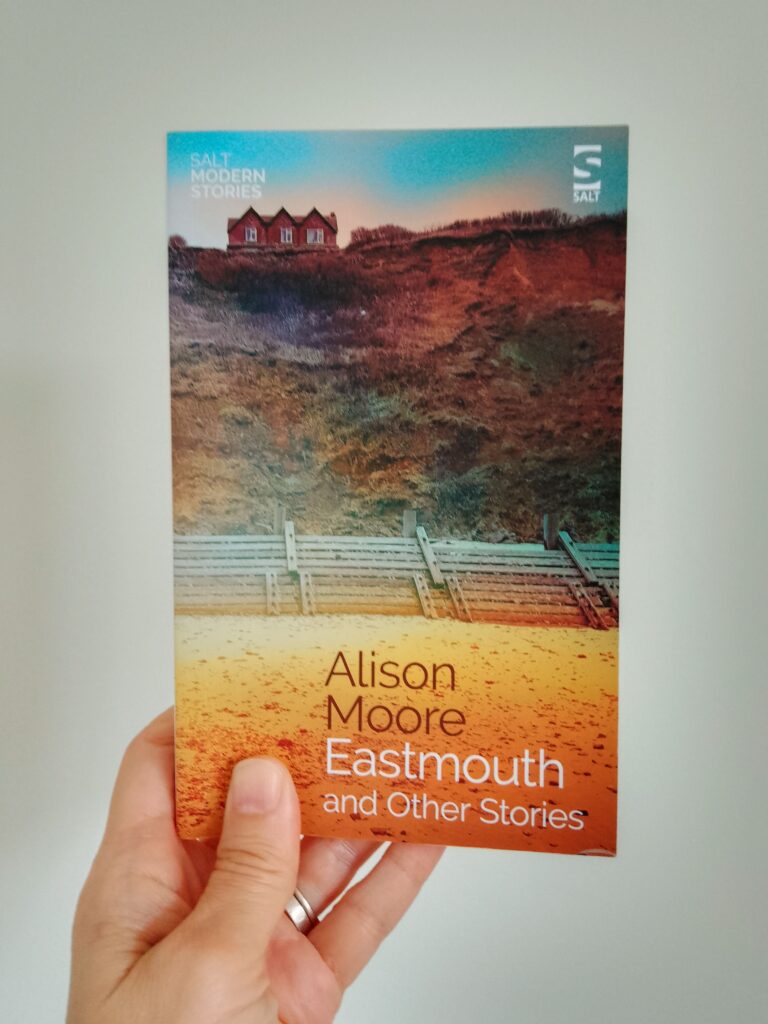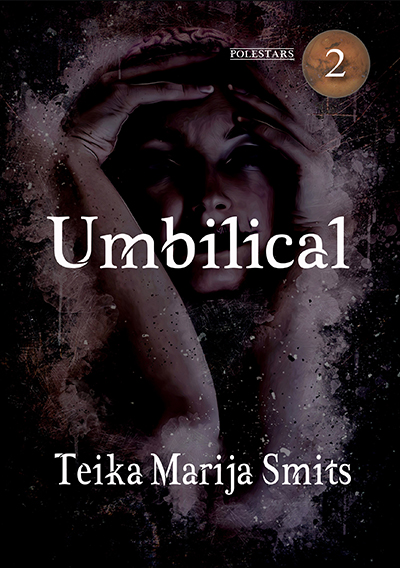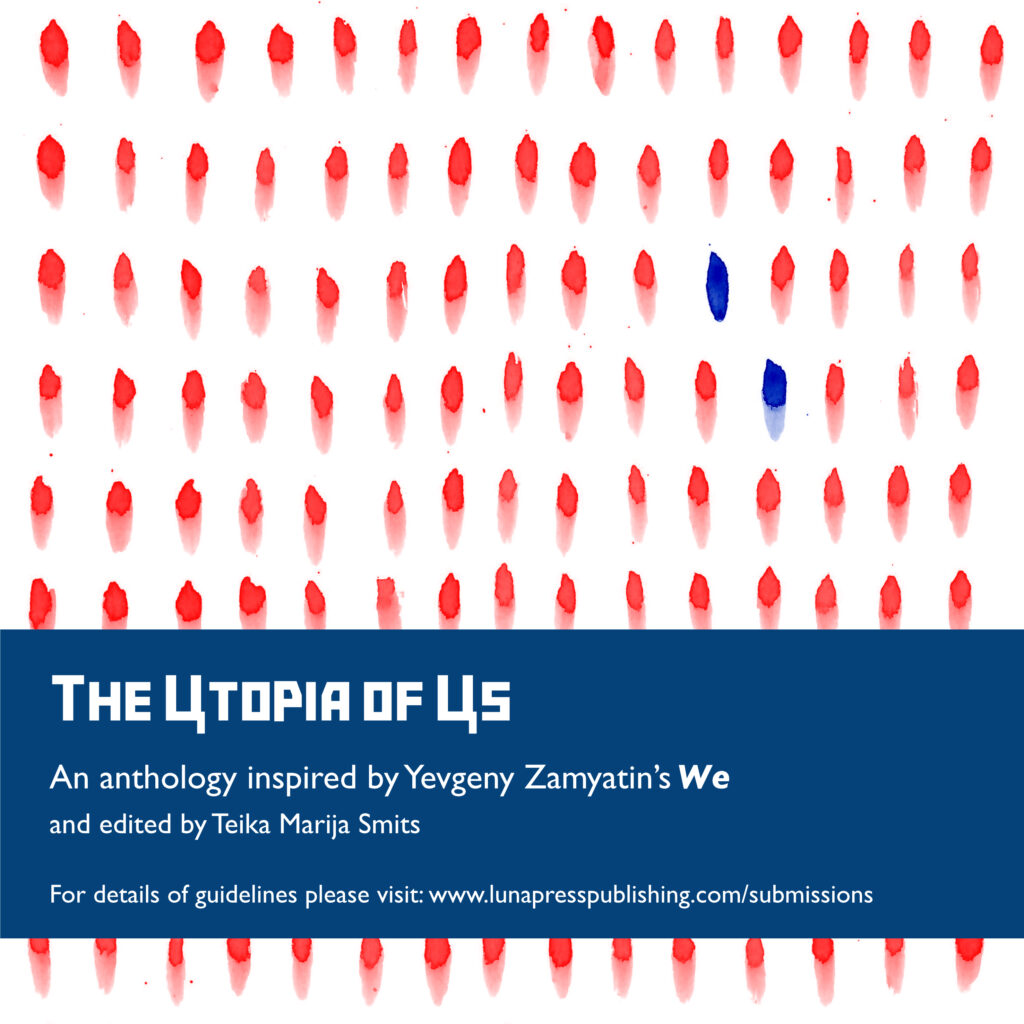Imagine going into your local Waterstones and browsing the nearest tables of books. What would you likely see on display? The latest Colleen Hoover or James Patterson? Lead titles from traditional publishers who have been singled out for success by Richard and Judy? The novels that made the Booker shortlist? A memoir by a celebrity? A cook book by a fitness guru? I doubt you’d come across any (or many) short story collections since Short stories don’t sell! is the usual cry of those in the business of making money from books. But let’s not dwell on commerciality for the time being, and instead focus on the perennial appeal of short stories; the fact that although, periodically, readers will be told by literary pundits that short stories are having a resurgence, there will always be people who love them.
Why read short stories?
The first short stories I read were fairy tales. Magical and full of deep, Jungian wisdom which I wouldn’t appreciate until I was a lot older, it didn’t even cross my mind that they were written in a specific kind of literary form. Then, when I was in my teens and could spend money at my local bookshop, there were Chekhov’s short stories which I discovered in the classics section – the place I always made a beeline for since I didn’t have a lot of money and each book was only £1. I could tell the stories were well-observed and beautifully written, but they didn’t really stick in my mind. I think I was too young to appreciate them. Later, when I was in my 20s, doing my postgraduate studies in London, I went into a Waterstones and, drawn to the 3-for-2 table, I saw a book by Will Self called Grey Area. For some reason, the cover compelled me to pick it up and buy it. I’m not sure I was aware that it was a book of short stories when I got my wallet out – it was simply a book by an author I’d never heard of with an intriguing cover. Perhaps, later on, I was surprised to learn that it was a collection of short stories, but it didn’t put me off reading the book. I started reading it, and was immediately struck by just how much story each one of the short stories contained despite each story only being around 15 or 30 pages long. And the stories themselves were odd… some were science fictional, some uncanny, some supernatural. I wasn’t exactly sure how to categorise what I was reading, but in some sort of profound way, I’d had my eyes opened to the possibilities of the speculative short form.

I didn’t immediately go out and buy dozens of short story collections as a result of reading Grey Area, but what that book did do was make me open to reading short stories. It gave me an understanding of just what a good short story could do for its reader, and made me realize that short stories were just as valuable, and worthy of my reading time, as novels. A well-written short story can pack a LOT into a short space; it can also communicate ideas in a fresh and immediate way, unshackled as it is from the necessity of going into a huge amount of worldbuilding, back story or detailed characterisation. And for readers who are tight on time, and want to start and finish a story in one sitting, they’re perfect.
Being overwhelmingly busy with various freelance projects at the moment, I haven’t been able to finish reading as many short story collections as I’d like, but that’s the thing about short story collections – you can dip in and out of them without losing the thread of the plot.
Short story collections I’m currently reading and enjoying for their themes, their concise language, compelling plots and intriguing characters are: Misery and Other Lines by CC Adams (perfect for those who have ever lived or worked in London), Candescent Blooms by Andrew Hook (perfect for those who are fascinated by Golden Era Hollywood), and Behind a Broken Smile by Penny Jones (Penny’s characterisation is spot-on, her stories chilling). I would also recommend: Sparks Flying by Kim Lakin (I’m a big fan of Kim’s characters and worldbuilding), Mammals, I Think We Are Called by Giselle Leeb (Giselle is ever so good at creating really odd and memorable situations), The Flowering by Alison Littlewood (perfect for those who – like me – love disquieting historical fiction) and Eastmouth and Other Stories by Alison Moore. (If you’ve not yet read anything by Alison Moore, then you’re in for a real treat. But I will warn you – Alison’s prose is so clean and precise that it might put you off trying to write anything in the same vein!) Lastly, two more collections that I would recommend are To Drown in Dark Water by Steve Toase (Steve’s stories are beautifully written and deliciously dark) and, finally, Starless and Bible Black by Susan York, which is an engaging and assured cross-genre debut.

So, to conclude: why read short stories? Because they provide a reader with almost instant gratification; have the power to take you into multiple worlds in just the one collection; and, done well, are incredibly moreish. They also introduce you to new authors in a relatively low-effort way.
Why write short stories?
As virtually every writer knows, novels make money, short stories don’t. Actually, let me be a little more specific – novels have the potential to make money, short stories… well, not so much. Of course, there are always exceptions. For example, if you were to check out the Wikipedia page of Ted Chiang – a writer I greatly admire – you’d discover a writer who has done pretty well with his short fiction. His short stories, novelettes and novellas have won many awards, his novella ‘Story of Your Life’ was turned into a successful film (Arrival), and his short story collections have been translated into a number of languages. I’d hazard a guess that his short fiction has earned him a bob or two.
However, for most writers, novels are the way to go to if you want to earn money and gain a wide readership for your work. Indeed, I often remind myself of this as I plug away at my own novel and find myself wondering if I can justify taking a break for a day or two to get down a short story that’s rattling around my head and insisting that I capture it in a Word document. But why, I ask myself, should I pause in the marathon that is writing a novel to sprint off in another direction completely to write a short story? Certainly, the reason isn’t financial, but the idea of getting a story down in only a couple of sittings – of having a finished, completed work of fiction in front of me within a short period of time is incredibly appealing. Also, it’s a lot of fun. I think I’ve (almost) come to terms with the fact that I’ll always want to write short stories, poetry and novels, though it will mean that for all the benefits to my craft in writing in these different forms, the big trade-off will be time, since time spent writing short stories take precious time away from the novel…
Anyway, let’s go with “fun” and “gratifying” for the why of writing short fiction. Also, short stories are an excellent place in which to explore various ideas or worlds, or the minds of particular characters who may end up appealing to certain readers so much so that the writer is encouraged to place those characters/ideas into a longer form setting…
More reasons are given here by the fabulous Francesca T. Barbini of Luna Press Publishing who devotes a whole video to the question!
Why analyse short stories?
Writers learn to write short stories by – you guessed it – actually writing short stories. And by reading them. But after reading a short story, there is also another important step: the analysis. Why was the short story so effective? How did the author manage to pull us into the story so quickly, and in such a compelling manner? How did they make the world and characters in that story come alive in so small a word count? How did they end the story in such a conclusive and satisfying way? What did the author’s choice of language add to the story? How did the author manage to convey such depth of emotion in such a compact narrative?
Both readers and writers of short stories gain so much more from their reading experience when they take the time to think and discuss short stories. Of course, when critiquing and discussing a short story in a reading group not everyone will think the same way, but it’s in the difference of opinions that we as writers and readers grow – both in knowledge and better understanding of our fellow humans. And that’s a pretty powerful thing.
*
So… if I’ve persuaded you to take a fresh look at short stories and to read some short form fiction then I’ll feel like my work here is done. But, if you’d like to delve deeper into the wondrous world of short stories, may I heartily recommend the following:
1) Get reading!
Subscribe to a speculative fiction magazine such as Clarkesworld, Interzone, Parsec or Shoreline of Infinity (to name just four magazines which I regularly read). Not only will they meet (virtually) every one of your speculative short form reading needs, but you’ll also be supporting an independendent press which enables real human writers and artists to get paid for their work. Best ofs are another great way to get a snapshot of the genre scene in any given year, and I can highly recommend the Best of British Science Fiction series edited by Donna Scott since each anthology contains a wonderful variety of all kinds of SF. If money is tight then check out some of the (many) literary and speculative fiction online journals which publish free-to-read stories. Also, I do want to give a shout-out to the UK indie publisher Nightjar Press which publishes chapbooks of individual short stories. I think this is a brilliant way to publish short stories and, so far, I’ve always really liked the short fiction that editor Nicholas Royle publishes.
If you can afford to do so, then buy an anthology or collection of short fiction. (As much as I find talking about my own work a squirm-inducing experience, I think it’s probably okay to mention that if you’re reading this you might be interested in my latest short story, ‘The November Room or Leaving the Labyrinth’ which is free to read over at IZ Digital. There’s also my upcoming short story collection, Umbilical, from NewCon Press…)

2) Get writing!
There are hundreds, if not thousands, of submission opportunities for authors of literary and/or speculative short stories. Cathy’s Comps and Calls is a great website for free-to-submit venues, and Tim Major’s newsletter is another way to hear about the latest spec. fiction calls. But one that I will point you in the direction of because, well, I’m editing it, is below.

3) Get analysing!
Lastly, if you want a real (and immediate) boost to your short story reading, writing and analysing, then do check out the Interzone Story Socials which I’m involved with. As well as learning about what makes short stories tick in these socials, you’ll get to meet with a friendly bunch of people all as keen and as passionate about short stories as you are, as well as getting to hear from some of the writers of the chosen short stories themselves. Another bonus is that you’ll get to pick up submission tips from the editor of Interzone himself – Gareth Jelley – and me. (Having commissioned and edited dozens of books, including anthologies and single author short story collections and dealt with literally thousands of submissions from authors over the decade I’ve been in independent publishing I’d like to think that we can both offer some insights into what makes for a stand-out short story submission.) Here’s a free tip from me right now: give your short story a memorable title. Oh, and being polite in your submission also helps… 😀

*
Right, that’s me done then. If you’d like to share some of your favourite magazines/anthologies/collections, and/or favourite short stories or favourite short story authors please do let me know in the comments. I’m always on the lookout for my next short story fix…
Also! I really enjoy reading reviews of speculative short fiction, but reviewers of speculative short fiction seem a bit thin on the ground. If you know of thoughtful reviewers of the genre, please do say.
Lastly, if this post was of interest to you and you’d like to read more of my reflections on writing, feel free to sign up to my newsletter using the box below. (This month I’m giving away a copy of Sherlock Holmes and the Occult Detectives Volume 1, in which I have a story. Of course I’m biased, but it’s a fantastic book and every story took me into an eerily compelling yet oddly comforting world.)

Hello Teika
Thank you for all your intriguing suggestions re authors and helpful advice on submissions. I’ve subscribed to your newsletter. I have a short story collection ‘An Advanced Guide to Radial City’ – details of this in the fiction section of my website, along with info and links on my novels, should you wish to investigate… I also have a signed copy of ‘Grey Area’…
Good luck with your novel!
Best wishes
Paul
Dear Paul – you’re very welcome! And thanks for subscribing to my newsletter, and letting me know about your short story collection – I will check it out when I have a moment. And I’m really happy about the fact that a couple of people have mentioned ‘Grey Area’ to me after reading the post. I assumed that hardly anyone would have read it, but obviously I’m wrong. It’s good to meet fellow ‘Grey Area’ owners/fans!
Take care, and all the best, Teika 😀